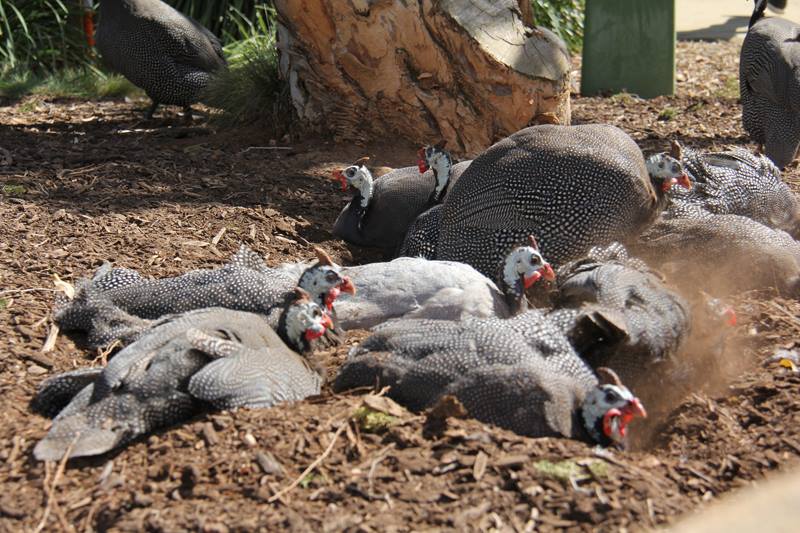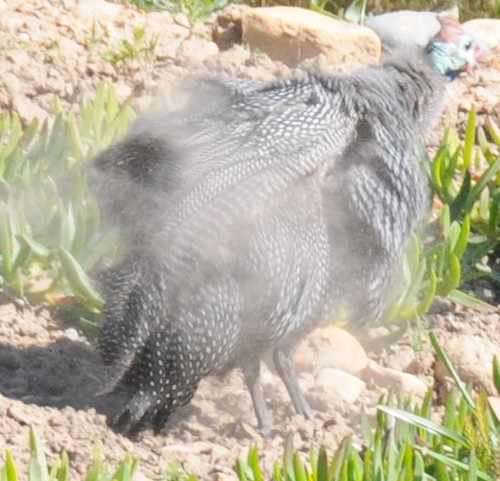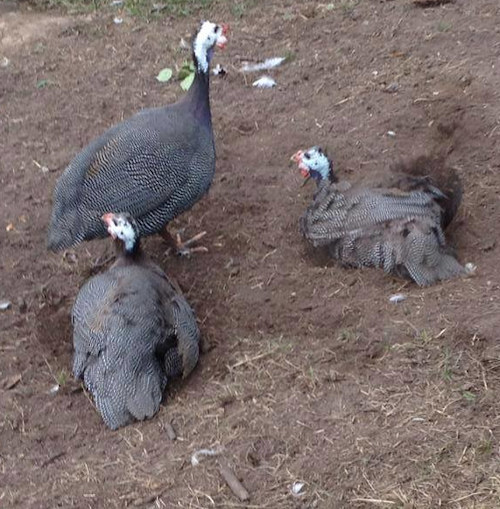Do Guinea fowl need a dust bath?

All Guinea fowl take regular dust bath in order to keep the plumage clean and pest free and domestic birds are no different.
Most birds take regular dust baths to help maintain their plumage.
Do Guinea fowl need a dust bath?
Guinea fowl of all ages both need and love a dust bath and will take them regularly, at least once a day. Dust baths for Guinea fowl must be kept dry, which can be a challenge in winter.
Guinea will choose their own spot, normally under a big tree and you may or may not be able to tempt them to where you want them.
Below: A good shake after a dusty bath.

One of the things I have discovered after changing my brooder floor covering to sand is how young Guineas start to dust bath. They often begin withing 24 hours of being transferred to the brooder, although they are not as dedicated as older birds.
How big does a Guineas dust bath need to be?
You will need a foot square for each Guinea that uses the dust bath.
Dust bathing is an active process that involves a lot of wriggling and splashing around in loose sand and dust and then a good shake.
Below: Guineas love a communal dust bath and prefer it to be in the sunshine.

What to fill a Guineas dust bath with?
Dust baths need to be filled with loose dry sand to which you can add wood fire ash and diatomaceous earth. Chopped herbs like rosemary, lavender or mint are not only nice smelling but can help with the removal of pests and parasites.
Fine builders sand mixed with dry garden dirt should be the bulk of the dust bath.
You can add sawdust to the dust bath as long as it is not from Camphor or heavily fragranced woods.
If you have chickens or other types of poultry then the Guineas will likely adopt an existing bathing area.
What does a dust bath do for Guinea fowl?
It is important for birds to groom their feathers regularly in order to keep them clean and functional. Most birds have a preen gland which secretes an oil used for grooming and Guinea fowl are no exception.
Dust bathing helps absorb any excess oil preventing the feathers from becoming greasy or matted. The oil-soaked dust is then shed easily, along with parasites to keep the plumage clean and flexible.
Dry skin and other debris can also be removed with a dust bath and regular use may help smother or minimise lice, feather mites, and other parasites.
